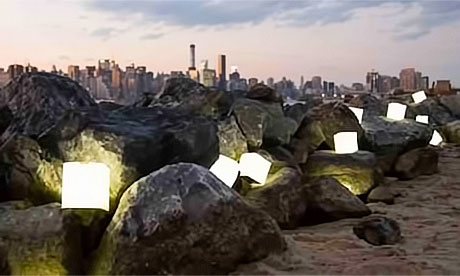When Syrian refugees leave their camps, they pack three items: food, water, and light.
The first two generally come in the form of packages from the United Nation’s World Food Program or other nonprofit organizations.
The latter, however, traditionally came in the form of kerosene lamps, which are less than ideal. In fact, they’re often dangerous.
According to the Word Health Organization, roughly 1.5 million people a year die from toxic kerosene fumes.
In India, where the impoverished population heavily depends on kerosene, the lamps cause over 30,000 yearly house fires.
In South Africa, 200,000 people are injured or lose property due to kerosene-related fires.
Not to mention, kerosene users spend 30% of their income buying it.
“They can save that money for food, education, building homes,” explains Alice Min Soo Chun, founder and CEO of Solight Design, who created a unique alternative: a slim solar lantern.
The SolarPuff is a two-ounce, flat-pack solar lamp which quickly expands into a 4.5-inch cube.
The lantern can last eight hours and easily recharges with clear sunlight.
It provides enough light for refugees or people in impoverished areas to perform tasks at night, without instigating any dangerous fires or needing batteries. There are even different settings (high or low), and a blinking option to scare off wild animals or signal distress.
To some degree, we likely take light for granted, but 1.06 billion people have no access to electricity or clean sustainable lighting, according to the World Bank.
Child trauma, kidnappings and sex trafficking
Chun explains how many Syrian refugees—often starving and sick—arrive by boat in the middle of night, at times when they cannot see where to land or how to safely disembark.
They are handed lights by NGO volunteers to navigate the waters so they don’t crash into rocks.
From there, they might need to walk up to 30 miles in the dark to arrive at a camp, where there are no lights. (Refugees without access to kerosene lamps often find themselves burning plastic trash, “which is even more toxic,” notes Chun).
SolarPuff brightens the trek—and their new life.
“A lot of times the kids are suffering from trauma and they’re frightened, but when they’re handed the light, they perk up.”
The popping element of the design, she explains, “gives them a sense of wonder.”
The SolarPuff has proven to be extremely useful in reducing camp crime, such as child kidnappings or sex trafficking. Continue reading
